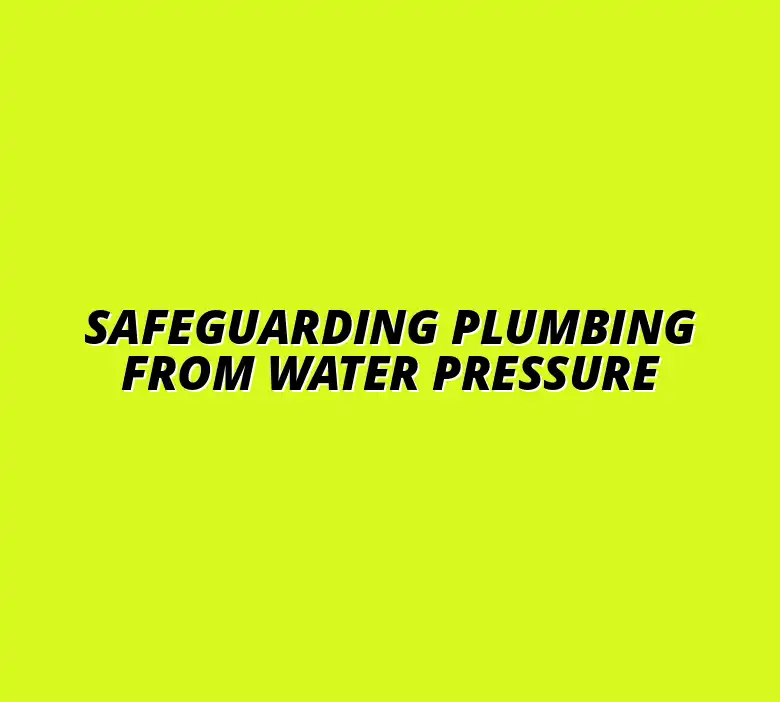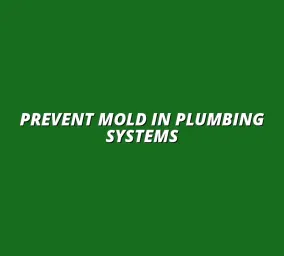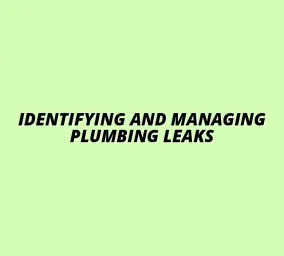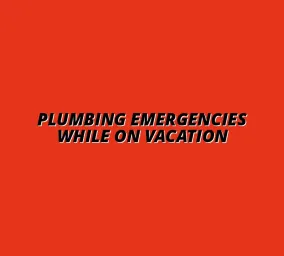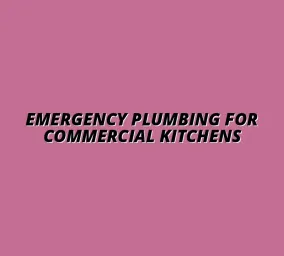Safeguarding Plumbing From Water Pressure
Understanding the Impact of High Water Pressure on Plumbing Systems
High water pressure can be a hidden menace in our homes. It often leads to a range of plumbing issues that can be costly and inconvenient. Understanding what high water pressure is, its causes, and its effects on plumbing systems can help us take preventative measures.
Essentially, high water pressure occurs when the pressure of water flowing through pipes exceeds the normal range, usually above 80 psi (pounds per square inch). If left unchecked, elevated pressure can stress pipes and fixtures, leading to leaks and even burst pipes. Therefore, recognizing and managing this issue is crucial for maintaining a healthy plumbing system. For example, learning how to stop a faucet leak quickly is a crucial skill in managing high water pressure.
Defining High Water Pressure and Its Causes
To grasp the concept of high water pressure, we first need to understand its common sources. Typically, it occurs due to factors like municipal supply pressure, elevation of the property, and issues such as a malfunctioning pressure regulator. Understanding these causes can equip homeowners with the knowledge to address the problem before it escalates.
Here are some common causes of high water pressure in residential areas:
- Municipal water supply pressure adjustments
- Elevation of the property relative to the city water main
- Faulty or missing pressure-reducing valves
- Clogged pipes leading to increased pressure
The Importance of Recognizing High Water Pressure
Recognizing high water pressure early can save homeowners from significant repair costs in the long run. It can also help prevent structural damage to the plumbing system, which can lead to expensive water damage in the home. Being proactive about addressing high water pressure can ensure a safe and comfortable living environment.
Additionally, understanding the signs of high water pressure can empower homeowners to take corrective measures. These measures can include checking water pressure regularly, consulting a professional, or even installing appropriate devices to regulate pressure. Regular drain cleaning is also vital; find out more about the essential benefits of regular drain cleaning.
Common Causes of High Water Pressure in Residential Areas
There are several factors that can lead to high water pressure in your home. For instance, municipal water sources often set pressures that are too high for residential use. Sometimes, homeowners may not realize that their pressure-reducing valve is faulty or improperly set, causing excessive pressure throughout the system. Understanding how to fix low water pressure in heaters can be part of the solution.
To summarize, here are some typical causes of high water pressure:
- Exceeding normal municipal water pressure settings
- Improperly adjusted pressure-reducing valves
- Changes in local water supply, such as increased demand
- Clogs within the plumbing system that create back pressure
Identifying the Signs of High Water Pressure
Being aware of the signs of high water pressure is vital for ensuring the longevity of plumbing fixtures and pipes. Many homeowners may overlook these signs until the problems become evident, which could already indicate considerable damage. Let’s take a closer look at what to watch for!
Common Indicators of Excessive Water Pressure
There are several clear indicators that your home might be experiencing excessive water pressure. One of the first signs often noticed is the sound of water rushing through pipes. You might also see water spraying from faucets or fixtures when they are turned on. Addressing low kitchen water pressure can be a key indicator of a broader issue. See our guide on fixing low kitchen water pressure.
Here are some common indicators of high water pressure:
- Strange noises such as banging or hammering in the pipes
- Water spraying from faucet connections or fixtures
- Frequent leaks around seals and joints
- Poor water flow in certain areas due to back pressure
Strange Noises in Pipes and Fixtures
Strange noises in your plumbing system can signal high water pressure. Sounds such as *water hammer* often indicate that the pressure is too high, causing pipes to vibrate and bang against one another. Addressing this promptly can prevent further damage to your plumbing system.
It's important to listen closely to your plumbing system. If you hear any unusual noises, consider having a professional inspect your plumbing to determine if high water pressure is the root cause. For example, addressing issues in your bathroom could be important - find out more by reading how to prevent bathroom water pressure problems.
Frequent Leaks and Water Damage
Frequent leaks can be a definitive sign of high water pressure. If you notice water stains on walls or ceilings, it often indicates that the pressure is causing leaks in hidden pipes. This can lead to significant water damage over time!
To prevent potential disasters, keep an eye on areas prone to leaks, such as under sinks and around toilets. Regular inspections can help catch these problems before they escalate. Regular maintenance and proactive plumbing practices are essential; discover more tips on maintaining water pressure with care.
Summarizing Key Strategies for Plumbing Protection
In our journey through understanding high water pressure, we’ve explored various methods to safeguard your plumbing systems. It's vital to keep these strategies in mind for a well-functioning plumbing system. Regular maintenance and timely upgrades can significantly reduce risks associated with high water pressure.
Let’s recap some effective approaches to mitigate these risks. Implementing a pressure regulator, conducting routine inspections, and upgrading to higher-quality materials are all essential steps to take. Each of these methods will contribute to the longevity and efficiency of your plumbing.
Recap of Effective Methods to Mitigate High Water Pressure Risks
Here are some of the most effective methods to protect your plumbing system:
- Install a pressure regulator to manage water flow.
- Conduct regular maintenance checks on all plumbing fixtures.
- Upgrade old pipes to more durable materials.
- Incorporate pressure relief valves into your system.
These methods not only help in managing high water pressure but also ensure that your plumbing remains in top condition. Remember, the key to effective plumbing protection is to stay proactive and vigilant in your approach!
Reviewing the Importance of Regular Maintenance
Regular maintenance is essential when it comes to plumbing. By routinely checking your plumbing fixtures and systems, you can catch issues related to high water pressure before they escalate. This proactive approach saves money and prevents significant damage in the long run.
Incorporating a maintenance schedule can lead to several benefits, including:
- Identifying potential leaks early
- Ensuring all fixtures are functioning optimally
- Extending the lifespan of your plumbing system
Don’t underestimate how regular checks can make a difference. Engaging in consistent maintenance ensures a reliable plumbing system that won’t let you down! For assistance with any plumbing issues, consider contacting a plumber in Billesley, Birmingham.
Final Thoughts on Upgrading Plumbing Systems
Upgrading your plumbing system can be a game-changer, especially in homes facing high water pressure issues. Investing in high-quality materials and advanced fixtures enhances performance and reliability. While the initial investment might seem steep, the long-term benefits far outweigh the costs.
When considering upgrades, think about:
- Choosing materials that resist corrosion and wear.
- Evaluating the installation process and associated costs.
- Consulting professionals for tailored recommendations.
Making informed decisions about upgrades will protect your home and ensure peace of mind, knowing that your plumbing system is robust and effective!
Encouraging Proactive Plumbing Practices
Taking action to maintain your plumbing can greatly reduce issues caused by high water pressure. Establishing a routine not only keeps your system in check but also encourages awareness of potential problems. Proactive practices are key to ensuring a trouble-free plumbing experience.
Let’s dive into how you can establish a plumbing maintenance schedule that works for your home. This schedule will help you stay on top of inspections and repairs, promoting a healthier plumbing system.
Establishing a Plumbing Maintenance Schedule
Creating a maintenance schedule is simple and can be adapted to your lifestyle. Here’s a handy checklist for homeowners:
- Inspect all visible pipes and fixtures for leaks monthly.
- Check water pressure levels every three months.
- Flush the water heater annually to prevent sediment build-up.
- Schedule professional inspections at least once a year.
This checklist is a great starting point to keep your plumbing in top shape. By following these steps, you can detect and fix small issues before they turn into larger problems!
Checklist for Homeowners: Keeping Your Plumbing in Top Shape
Here’s a quick checklist to help you keep your plumbing system healthy:
- Look for signs of water pressure problems.
- Replace worn-out fixtures promptly.
- Ensure all drains are clear and functioning properly.
- Educate yourself about the plumbing system in your home.
By following this checklist, you’ll be better prepared to maintain your plumbing system effectively. Remember, prevention is always better than cure!
Resources for Further Learning and Assistance
To stay informed and proactive about plumbing maintenance, utilizing available resources is essential. Connecting with professionals and accessing online information can provide valuable insights about your plumbing system. Here’s how you can get started.
Consider the following resources:
- Local plumbing services for professional help.
- Online forums for community advice and shared experiences.
- Educational websites offering articles and videos on plumbing care.
These resources will help equip you with knowledge and support, ensuring that your plumbing system remains in the best condition possible!
Connecting with Plumbing Professionals and Services
If you're ever unsure about your plumbing system, reaching out to professionals can be a lifesaver. They can provide insights and solutions tailored to your specific concerns. Keep contact information for reliable plumbers handy, so you can reach out when needed!
In conclusion, embracing a proactive approach with regular maintenance and utilizing available resources will help you manage high water pressure effectively. Your plumbing system is a crucial part of your home, and taking care of it ensures a comfortable living environment!

